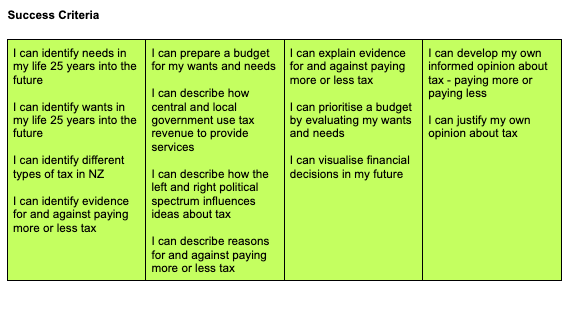10F1 Global Studies
Section outline
-
Kia ora, welcome to your Global Studies 2024 Course Page!
Ko Ms Martín toku ingoa. I will be your Global Studies teacher this year.
You can email me at mmartin@mhjc.school.nz or visit me in my class F5.
Please check MHO and Google Classroom regularly for activities and planning. Your assessments will be linked here, at the top of the MHO page.
-
Opened: Wednesday, 28 February 2024, 12:00 AMDue: Monday, 4 March 2024, 9:31 AM
-
Opened: Wednesday, 19 June 2024, 12:00 AMDue: Tuesday, 25 June 2024, 4:00 PM
-
EXPLORE / TŪHURA learning intentions:
- We are EXPLORING New Zealand’s participation in national & international conflicts, by discovering Maori leaders & Western leaders in times of conflict.
- We are EXPLORING influential leaders by identifying what a GREAT leader is.
- We are EXPLORING influential leaders by investigating the traits and characteristics of an impactful leader.
Influencers around the world wield significant impact in various fields, from politics and technology to entertainment and social issues. Their influence is often shaped by a combination of factors, including achievements, visibility, communication skills, and societal context. Here are some world influencers and the factors that have shaped their influence. In each case, the influence of these individuals is shaped not only by their accomplishments but also by their ability to resonate with and inspire people, their contributions to societal issues, and their adaptability in an ever-changing global landscape
Learning Intentions: We are learning to (WALT)...
- work together as a team
- develop an understanding of expectations for Global Studies
- develop an understanding of World Influencers and the Factors Shaping Their Influence
Success Criteria: I can/have...
- understood Ms Martín expectations for 2024
- describe the lives and impact of world influencers across different fields
- identify the factors that have shaped their influence.
- researched and discussed the diverse elements contributing to the influence of these individuals.
Activities:
1. Get to know each other
2. Brainstorm-World Influencers
3. Influencers around the world -
EXPLORE / TŪHURA learning intentions:
- We are EXPLORING New Zealand’s participation in national & international conflicts, by discovering Maori leaders & Western leaders in times of conflict.
- We are EXPLORING influential leaders by identifying what a GREAT leader is.
- We are EXPLORING influential leaders by investigating the traits and characteristics of an impactful leader.
This week we are continuing to brainstorm the difference between Influencers, changemakers, and leaders.
Learning Intentions:
- Understand the roles and characteristics of leaders and changemakers.
- Identify examples of leaders and changemakers in various contexts.
- Analyze the impact of leaders and changemakers on society.
- Reflect on personal leadership qualities and potential for creating positive change.
Success Criteria I can/have...
- Identify key characteristics and qualities associated with effective leadership and changemaking
- Analyze examples of leaders and changemakers from history, current events, or literature, and explain how they exemplify leadership or change-making qualities.
- Evaluate the impact of leaders and changemakers on societal change, providing evidence to support my analysis.
- Apply their understanding of leadership and change-making qualities to identify potential leaders or changemakers in their own communities or spheres of influence.
Activities:
1. Spot the differences, Slide 8 MMA Changemakers
2. Influencers around the world - Worksheet in Google Classroom
-
This week we will discuss:
How does a Changemaker differ from a leader? and We will look into a case study

EXPLORE / TŪHURA learning intentions:
- We are EXPLORING New Zealand’s participation in national & international conflicts, by discovering Maori leaders & Western leaders in times of conflict.
- We are EXPLORING influential leaders by identifying what a GREAT leader is.
- We are EXPLORING influential leaders by investigating the traits and characteristics of an impactful leader.
This week we are continuing to brainstorm the difference between Influencers, changemakers, and leaders.
Learning Intentions:
- Understand the roles and characteristics of leaders and changemakers.
- Identify examples of leaders and changemakers in various contexts.
- Analyze the impact of leaders and changemakers on society.
- Reflect on personal leadership qualities and potential for creating positive change.
Success Criteria I can/have...
- Identify key characteristics and qualities associated with effective leadership and changemaking
- Analyze examples of leaders and changemakers from history, current events, or literature, and explain how they exemplify leadership or change-making qualities.
- Evaluate the impact of leaders and changemakers on societal change, providing evidence to support my analysis.
- Apply their understanding of leadership and change-making qualities to identify potential leaders or changemakers in their own communities or spheres of influence.
Activities
0. Current Event Quiz
Video Watching
Do Now: Copy and Fill in the gaps
Create a map: Changemakers/Leaders Around the World -
FOCUS / ARONGA learning intentions:
- We are FOCUSING on people challenging injustices and social norms by researching a historical or current leader
This week you are going to be working on your assessment.
This task requires you to work individually to research and identify an effective historical or current leader.
- You need to explain what actions they took to create change and WHY they took these actions (e.g. the ideas they held) You need to describe a CHANGE that your leader was responsible for.
- You need to explain the effects and consequences of the CHANGE (these could be negative or positive effects)
- You should include visuals (graphs, images, infographics, etc.), with supporting captions to highlight key information You need to have a bibliography as your last slide OR put on the back of your poster.
-
Enter text here...
PLAN & DO / WHAKAMAHI learning intentions:
- We are PLANNING to present our leader so that we can share the goals, the impact, and the multiple perspectives of our chosen leader
Enter text here...
-
Enter text here...
FOCUS / ARONGA learning intentions:
- We are FOCUSING on people challenging injustices and social norms by researching a historical or current leader
- We are FOCUSING of New Zealand's participation in wars both internationally and nationally throughout its history by prioritising some examples of National and International conflicts
Enter text here...
For the rest of the term, we will be focussing on the following international and national conflicts:
International Wars:
World War I (1914–1918)
World War II (1939–1945)
Korean War (1950–1953)
Vietnam War (1963–1975)
Gulf War (1990–1991)
War in Afghanistan (2001–2021)
Iraq War (2003–2011)
New Zealand Wars (1845–1872)
South African War (1899–1902)
Kia ora! This week we...
Paearu Angitu (Success Criteria): I can...
- identify key national and international conflicts in which New Zealand has participated.
- explain the reasons for New Zealand's involvement in these conflicts, citing specific historical events and circumstances.
- analyze the impact of these conflicts on New Zealand's society, culture, and international relations, providing examples to support their analysis.
- critically evaluate different perspectives on New Zealand's participation in conflicts, considering the viewpoints of different groups within society.
Hei Mahi (Activities):
- Timeline in Google Classroom
- Overview questions
-
Enter text here...
FOCUS / ARONGA learning intentions:
- We are FOCUSING on people challenging injustices and social norms by researching a historical or current leader
- We are FOCUSING of New Zealand's participation in wars both internationally and nationally throughout its history by prioritising some examples of National and International conflicts
- We are Focusing on the causes, events, and consequences of the New Zealand Wars, gaining insight into this significant period of New Zealand's history.
Enter text here...
Kia ora! This week we are looking into NZ wars
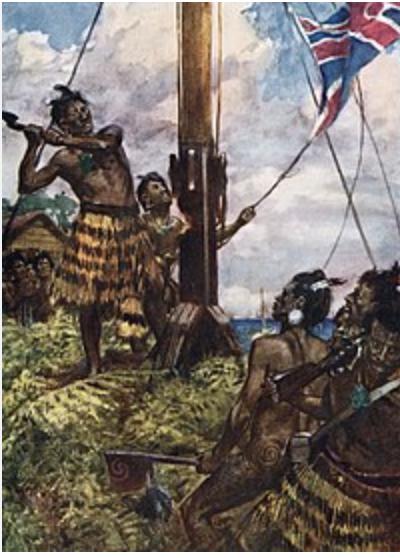
Context: 'Kotahitanga' - Leadership, unity + collective action
Paearu Angitu (Success Criteria): I can...
- can identify and describe the primary causes of the New Zealand Wars, including land disputes, cultural clashes, economic factors, and colonial government policies.
- can analyze key events and battles of the New Zealand Wars, explaining their significance, sequence, and outcomes with reference to historical sources and evidence.
- can evaluate the consequences of the New Zealand Wars, considering their impact on Maori communities, European settlement patterns, land ownership, and political developments in New Zealand.
- can demonstrate their understanding of the causes, events, and consequences of the New Zealand Wars through written or oral explanations, presentations, and discussions, incorporating historical evidence and examples to support their arguments.
- can engage empathetically with the experiences of individuals and communities affected by the New Zealand Wars, demonstrating an understanding of diverse perspectives and historical contexts.
- can synthesize information from multiple sources, including primary documents, secondary literature, and multimedia resources, to construct coherent and well-supported explanations of the New Zealand Wars.
Hei Mahi (Activities):
- NZ Wars documentary-Questions-Google Classroom
- Infographic-Google classroom
-
EXPLORE / TŪHURA learning intentions:
- We are EXPLORING the complex world of risky business of human rights and our role in protecting the human rights of others.
- We are EXPLORING the events that led to the creation of UDHR
- We are EXPLORING the struggles for rights in the present time
During this term, we will explore human rights around the globe and our role in protecting our own rights and the rights of others. We will be learning about some of the different ways people have advocated for change in the past and the fights people are continuing to wage today in our own backyard here in Aotearoa. We will be spending time thinking about our identity within our communities, the importance of allyship, and figuring out what issues we care about most.
We will be focussing on the importance of advocacy and how Human Rights are Protected by Non-Governmental Organizations.
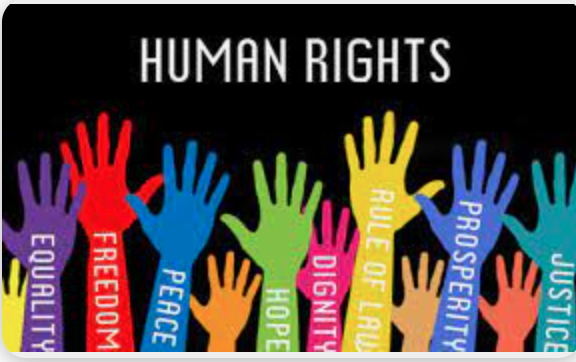
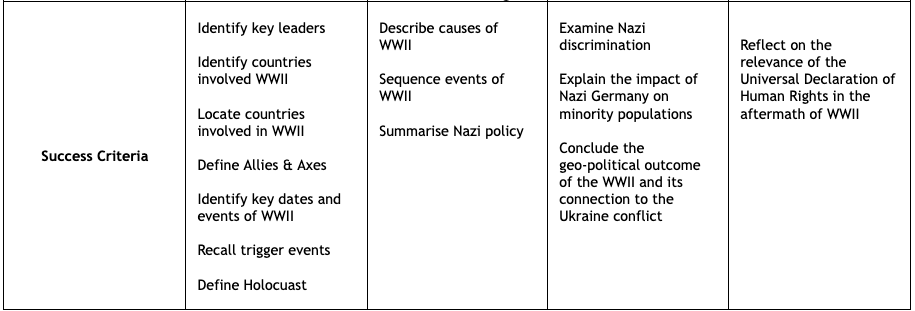
-
FOCUS / ARONGA learning intentions:
- We are FOCUSING on Human Rights by defining the United Nations Declaration of Human Rights (UDHR)
- We are FOCUSING on Human Rights and Social Justice by identifying and explaining the breaches of the United Nations Declaration of Human Rights (UDHR) in present times
- We are FOCUSING on developing an understanding on the role of Non-Governmental Organizations (NGOs) in protecting human rights.
- We are FOCUSING on describing the strategies and methods used by NGOs to protect human rights.
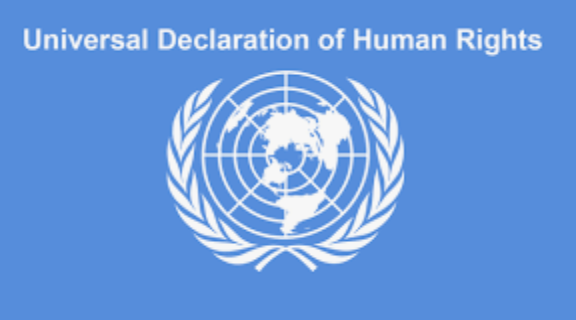

Success Criteria: I can/have...
I can define UN
I can define UDHR
I can list UDHR Human Rights
I can describe the events leading to the creation of the UN and the UDHR
I can relate an issue/situation/case study to an UDHR article (human right)
I can explain how the issue/ situation/ case study is a breach of a UDHR article (human right)
I can explain the effect of Human rights violation of people/groups
-
 This week we will focus on Amnesty International and how they advocate for Human rights.
This week we will focus on Amnesty International and how they advocate for Human rights. -
Enter text here...
EXPLORE / TŪHURA learning intentions:
- We are EXPLORING the complex world of risky human rights business and our role in protecting the human rights of others.
- We are EXPLORING the events that led to the creation of UDHR.
- We are EXPLORING the struggles for rights in the present time.
- We are EXPLORING how and why identities and culture can be multiple and dynamic in the context of teen vaping in New Zealand.
- We are EXPLORING how society’s range of social organizational systems impact upon the rights, roles, and responsibilities of people and groups regarding teen vaping in New Zealand.
- We are EXPLORING different views about human rights and how they are valued and applied in the context of teen vaping in New Zealand.
Enter text here...
This week:
Teen Vaping in Aotearoa New Zealand
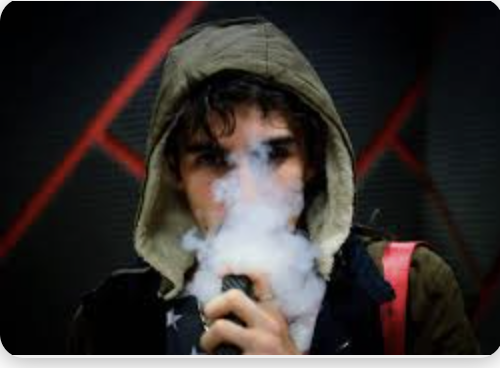
Rich question suggestion:
How is vaping influencing teenage culture in Aotearoa New Zealand?
Systems:
Health, capitalist
Global flows:
Vaping, policy, legislation, media
Values and perspectives:
Public health, capitalist
Concepts:
Culture, community, society, health, rights, roles, responsibilities, laws, youth, identity, media, colonisation, power, capitalism, beliefs, values, freedoms etc
Learning Intentions:- Understand how vaping culture and identity are constructed among teenagers.
- Recognize the influence of peer groups, social media, and marketing on teenagers' vaping behaviours and identities.
- Investigate how factors such as age, gender, socioeconomic status, and ethnicity intersect with vaping culture among teens.
- Identify the regulatory frameworks and policies governing the sale and marketing of vape products in New Zealand.
- Understand how these regulations impact teenagers' access to vaping products and their rights as consumers.
- Analyze the roles and responsibilities of various stakeholders, including government agencies, schools, parents, and vaping industry players, in addressing teen vaping.
- Examine the rights of teenagers to health, safety, and information regarding vaping products.
- Evaluate conflicting perspectives on teenagers' autonomy and freedom of choice in relation to vaping.
- Investigate advocacy efforts aimed at protecting teenagers' rights and promoting public health in the face of the vaping epidemic.
- Understand how the vaping industry uses marketing tactics to target and influence teenagers.
- Analyze power dynamics between teenagers, parents, schools, and vaping companies in shaping attitudes and behaviors related to vaping.
- Investigate the consequences of teen vaping on individual health, social norms, and community well-being, particularly in vulnerable or marginalized groups.
- Examine how global trends in vaping culture and industry influence teenagers in New Zealand.
- Analyze the role of online platforms and international marketing campaigns in promoting vaping among New Zealand teenagers.
- Investigate the implications of teen vaping on public health policies, healthcare systems, and community resources at the local and national levels.
Success Criteria:- Students critically analyze the cultural, social, and economic factors contributing to teen vaping in New Zealand.
- Students evaluate the impact of vaping on teenagers' identities, well-being, and societal normsStudents demonstrate an understanding of power dynamics and interests shaping the vaping landscape among teenagers.
- Students apply their understanding of regulations, rights, and responsibilities to propose strategies for preventing and addressing teen vaping in New Zealand.
- Students suggest interventions to mitigate the influence of marketing and peer pressure on teen vaping behaviours.
- Students effectively communicate their findings and perspectives on teen vaping through written or oral presentations.
Activities:
1. Article reading (Google classroom)
2. Documentary and questions (Google classroom)
-
Enter text here...
PLAN & DO / WHAKAMAHI learning intentions:
- We are PLANNING a presentation so that we can show your understanding of differing perspectives on vaping in teens and how this is a social issue and how these perspectives influence people's viewpoints and responses to this issue.
Enter text here...
Assessment Title: Teens Vaping in Aotearoa
Student Instruction Sheet
Working Towards
Working At
Working Above
Working Beyond
You have demonstrated an understanding of a contemporary social issue
You have demonstrated a full understanding of a contemporary social issue
You have demonstrated a sound understanding of a contemporary social issue
You have demonstrated an in-depth understanding of a contemporary social issue
You have described in detail the perspectives of the people/groups involved
You have described in detail the perspectives of the people/groups involved, using examples to support
You have explained the perspectives of the people/groups involved, using examples to support
You have explained in detail the perspectives of the people/groups involved, using examples to support
You have given a detail description of the responses from groups/people on the contemporary social issue
You have compared OR contrasted the differing responses from groups/people on the contemporary social issue
You have compared and contrasted the differing responses from groups/people on the contemporary social issue
You have effectively compared and contrasted the differing responses from groups/people on the contemporary social issue
NCEA Achieved
NCEA Achievement with Merit
NCEA Achievement with Excellence
Demonstrate understanding of perspectives on a contemporary social issue
Explain perspectives on a contemporary social issue
Examine perspectives on a contemporary social issue
-
FOCUS / ARONGA learning intentions:
- We are FOCUSING to develop the skill to place key events in date order.We are FOCUSING to work out which century certain events occur in.
- We are FOCUSING to classify events in a timeline
- We are FOCUSING to identify anachronisms and how they are used by historians.
- We are FOCUSING on adapting normal number into Roman numerals
This week:
To be able to place key events in date order.
To add to your glossary of keywords
Success criteria
By the end of today’s lesson can you
Give a definition of the word chronology
Place events in chronological order
Begin to work out which century certain events occur in.
Activities:
1, Mix and Match (resources below)
2. Write the meaning of the word Chronology (resources below)
3. Put the following events in chronological order (resources below)
4. How do I work out the century? )(resources below)
5. Building a Timeline (resources below)
-
Enter text here...
EXPLORE / TŪHURA learning intentions:
- We are EXPLORING the social, cultural, and historical contexts of the Ancient Olympics and their impact on contemporary society.
- We are EXPLORING the significance of the Ancient Olympic Games in ancient Greek society.
- We are EXPLORING the legacy of the Ancient Olympic Games in modern society.
Enter text here...
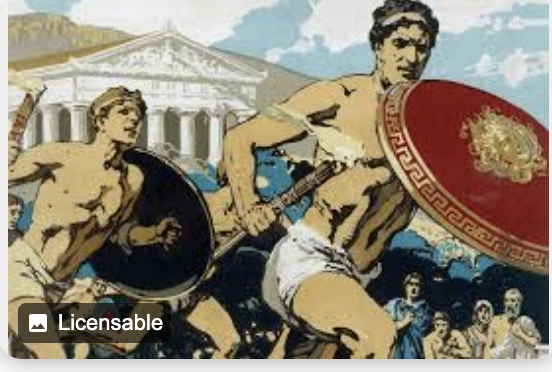
For the first two weeks, we will explore the history and cultural impact of the Ancient Olympic Games, including their religious aspects and influence on Greek society.
In a week Paris 2024 will start and you will be able to recognise the lasting influence of the ancient games on modern sports and culture.
Paearu Angitu (Success Criteria): I can...
- accurately describe the purpose, location, and key events of the Ancient Olympic Games.
- discuss the religious and cultural significance of the games, as well as their impact on Greek unity and cultural exchange.
- Students can explain how the games evolved, particularly during the Roman period, and identify key differences between the ancient and modern Olympics.
Hei Mahi (Activities):
- Reading comprehension Ancient Olympic games (Google Classroom)
- Quiz
- Slide Show -mind map google Classroom
- Research questions
-
Enter text here...
FOCUS / ARONGA learning intentions:
- We are FOCUSING to identify significant scandals from the 2024 Paris Olympics.
- We are FOCUSING to understand the ethical issues and implications associated with these scandals.
- We are FOCUSING to evaluate the responses from key stakeholders, including the International Olympic Committee (IOC) and the public.
- We are FOCUSING to reflect on the potential measures to prevent similar issues in future events.
Enter text here...

Paearu Angitu (Success Criteria): I can...
- list and describe at least two major scandals from the 2024 Paris Olympics.
- explain the ethical issues and societal impacts of these scandals.
- discuss how different stakeholders responded to the controversies.
- suggest practical solutions or preventive measures for future events
Hei Mahi (Activities):
- Article reading : https://thespinoff.co.nz/sports/07-08-2024/the-biggest-scandals-of-the-2024-paris-olympics-so-far
- Case study group-research
-
PLAN & DO / WHAKAMAHI learning intentions:
- We are PLANNING to prepare a debate so that we can participate in discussions, debates, or reflections on the role of sports in promoting social change, showing respect for diverse viewpoints.
- We are PLANNING to conduct research on a sports protest event, using reliable sources to gather information.
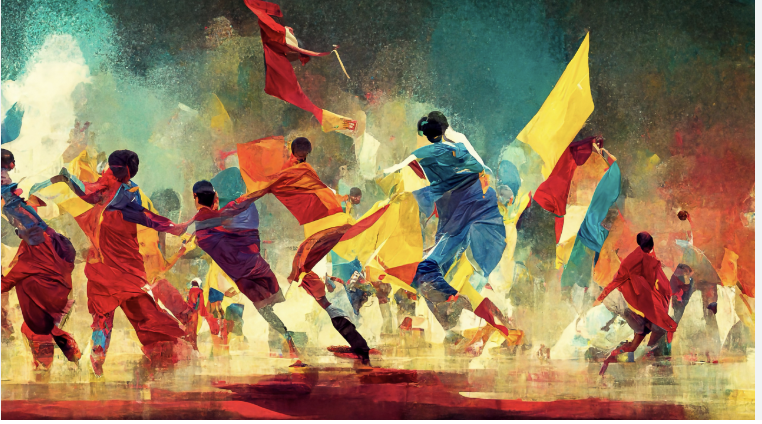
Kia ora! This week we are focusing in discussing how politics and sports have deep connections to our identities: where we grew up, how we were raised and who raised us. Sports are more than participating in or watching physical competitions, much like politics is more than just elections
Paearu Angitu (Success Criteria): I can...
- describe key historical events that have influenced protests in sports, particularly focusing on examples like Tommie Smith and John Carlos at the 1968 Olympics.
- understand the relationship between sports and social justice movements, particularly in how athletes use their platform to address societal issues.
- explain the concepts of civil rights, social justice, and protest, and how these relate to sports.
- identify and explain different forms of protest in sports, both historical and contemporary.
Hei Mahi (Activities):
- Reading-Google classroom
- Video analysis- Google classroom
-
Oral Presentation on Sports as a Platform for Change
Should International sports events be used as a platform to promote political, social or environmental positive change?
Learning Intentions:
- Understand the role of international sports events in promoting political, social, and environmental causes.
- Develop critical thinking and argumentation skills by exploring historical and contemporary examples.
- Enhance collaborative research and presentation skills by working in groups to explore a controversial topic.
Success Criteria: I can
- Identify and explain at least two historical and two contemporary examples where international sports events were used to promote political, social, or environmental causes.
- Critically evaluate whether the use of international sports events for these purposes is effective or appropriate, presenting clear arguments.
- Deliver a clear, well-structured oral presentation that includes visuals or other supporting materials.
- Work effectively as a group, with all members contributing to the research, analysis, and presentation.
-
Enter text here...
EXPLORE / TŪHURA learning intentions:
- We are EXPLORING financial literacy by calculating how the interest and debit and credits cards works
- We are EXPLORING financial literacy by researching the history of banks
- We are EXPLORING financial literacy by discovering how capitalism is impacting our lives
- We are EXPLORING financial literacy by discovering different careers
Enter text here...

Yr 10 'X Factor'
Learning activities
1. we will explore the process of getting set up on Banqer High.
We will take a Bank Accounts quiz and then we will be able to sort out our bank accounts.
2. TALKING ABOUT INTEREST and COMPOUND INTERESTa. Open the ‘Interest Explained’ Worksheet in Google Classroom
Make sure you show your working on the worksheet
b. Open the ‘Compound Interest’ Worksheet in Google Classroom. Make sure you show your working.
3. Case Studies. Research a specific bank in New Zealand and analyze its history, products, and impact on the economy. -
Enter text here...
EXPLORE / TŪHURA learning intentions:
- We are EXPLORING financial literacy by calculating how the interest and debit and credits cards works
- We are EXPLORING financial literacy by researching the history of banks
- We are EXPLORING financial literacy by discovering how capitalism is impacting our lives
- We are EXPLORING financial literacy by discovering different careers
Enter text here...
-
Enter text here...
EXPLORE / TŪHURA learning intentions:
- We are EXPLORING financial literacy by calculating how the interest and debit and credits cards works
- We are EXPLORING financial literacy by researching the history of banks
- We are EXPLORING financial literacy by discovering how capitalism is impacting our lives
- We are EXPLORING financial literacy by discovering different careers
Enter text here...
-
Enter text here...
EXPLORE / TŪHURA learning intentions:
- We are EXPLORING financial literacy by calculating how the interest and debit and credits cards works
- We are EXPLORING financial literacy by researching the history of banks
- We are EXPLORING financial literacy by discovering how capitalism is impacting our lives
- We are EXPLORING financial literacy by discovering different careers
Enter text here...
-
EXPLORE / TŪHURA learning intentions:
- We are EXPLORING...Financial Literacy by…. recognising how the government impacts lives - tax system and goods/services provided
- We are EXPLORING...Financial Literacy by… organising expenditure in relating to wants and need
- We are EXPLORING...Financial Literacy by… recognising fixed expenditure and disposable income
